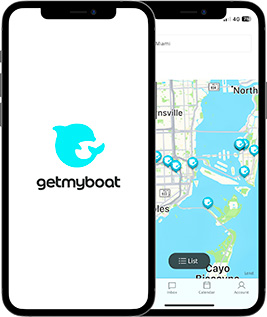Lake Michigan, one of the five Great Lakes in North America, boasts the third-largest volume among them. Its shores are adorned with numerous boat launches and marinas, establishing Lake Michigan as a paradise for boating enthusiasts. The lake offers an abundance of options for boat rentals and charters, providing an exceptional means to immerse oneself in its breathtaking landscapes, crystal-clear waters, and diverse wildlife. Oversight of boating activities on Lake Michigan falls under the jurisdiction of the Michigan Department of Natural Resources (DNR) and the US Coast Guard (USCG), ensuring adherence to relevant laws and regulations.
All operators associated with Getmyboat are mandated to operate in accordance with local guidelines, guaranteeing full compliance with legal prerequisites. This entails obtaining proper registrations, passes, permits, and meeting the necessary criteria for both vessels and captains. Furthermore, operators must conform to the proper utilization of docks and specified boating areas for commercial activities, as outlined by local laws and facility regulations. To help Getmyboat operators comply with all applicable regulations, we have gathered the following essential details for boating in Lake Michigan:
Boater Education Certificate:
To operate a motorized vessel in Michigan, individuals born after July 1, 1996, must successfully complete a state-approved boater safety course. Additionally, those born after December 31, 1978, must complete a personal watercraft (PWC) safety education course to operate a PWC. Proof of completion in the form of a boater education certificate is required to be carried by boaters while operating a vessel.
Insurance:
Comprehensive insurance coverage is essential for safeguarding your business, protecting your valuable assets, and ensuring compliance with industry regulations. Our trusted partner, Boat Charter Insurance , can help you tailor an insurance plan that meets your specific needs.
Watercraft Registration and Titling:
All boats operating in Michigan must be registered with the Michigan Department of State and visibly display a valid registration decal. Watercraft that are 16 feet or shorter, powered by oars or paddles, and not used for rental or commercial purposes are exempt from registration. Similarly, non-motorized vessels such as canoes, kayaks, rafts, surfboards, sailboards, and swim floats are also exempt from registration, regardless of their length.
Titles are required for watercraft exceeding 20 feet in length or those equipped with a permanently affixed engine, regardless of their overall size. Upon the owner's request, titles can also be issued for watercraft not legally obligated to have one, allowing for the inclusion of a lien-holder in the record.
USCG Captain’s License:
Boat captains must possess a valid US Coast Guard license that aligns with the size and type of vessel they operate.For vessels carrying up to six passengers, a 6-pack license is mandatory, while vessels with more than six passengers require a Master Captain's license. Captains bear the responsibility of ensuring the safety of both their charter vessels and all passengers on board. For more information on captain's licenses, please visit the Mariners Learning System website. Use the code GETMYBOAT10 to receive a 10% discount.
Certificate of Inspection (COI):
For the operation of commercial passenger boats on Lake Michigan, it is essential to possess a valid Coast Guard Certificate of Inspection (COI). This certification guarantees compliance with safety regulations and verifies the presence of essential safety equipment, such as fire extinguishers and life jackets, on the vessel. Additionally, the COI ensures that the boat is appropriately staffed with an adequate number of qualified crew members capable of safely navigating the vessel. More detailed information can be found on the USCG website.
Recreation Passport:
The Michigan Recreation Passport is a yearly permit granting access to state parks, recreation areas, state forest campgrounds, designated boating access sites, and state-designated trailheads. Additionally, it allows for daily parking at these locations. You can purchase at any DNR Service Center.
Boat Launch Permit:
To launch a boat at any state-managed public boat launch on Lake Michigan, it is necessary to obtain a Lake Michigan Seasonal and Commercial Boat Launch Permit. For additional details regarding these permits, please reach out to the township where you plan to operate or launch your vessel.
Commercial Use Permit:
A Commercial Use Permit for Vessels is mandatory for any watercraft engaged in commercial activities on Lake Michigan within the state of Michigan. This encompasses vessels utilized for fishing, charter services, or other commercial endeavors. The permit is granted by the Michigan Department of Natural Resources (DNR).
Additional Regulations:
- Vessels are required to be equipped with essential safety gear, including life jackets for all passengers, fire extinguishers, a first aid kit, navigation lights, and a sound-producing device.
- Children below the age of 13 must consistently wear a Personal Flotation Device (PFD) while on board a vessel.
- All vessels must undergo registration with the Michigan Department of Natural Resources (DNR).
- Operating a vessel within 150 feet of a person in the water is strictly prohibited.
- Anyone engaging in fishing from a boat must possess a valid Michigan fishing license.
- Charter boat operators are obligated to hold a valid USCG Merchant Marine Credential (MMC) with the appropriate endorsement corresponding to the type of vessel they are piloting.
- Operators of charter or livery boats are required to undergo a physical examination and drug test.
- Successful completion of a DNR-approved training course is mandatory for charter or livery boat operators.
- Charter or livery boat operators must keep a logbook documenting all their trips.
Please note that this summary provides a general overview of boating regulations on Lake Michigan and may not encompass all applicable rules and necessary permits. Specific regulations may vary depending on the intended activity. For a more comprehensive understanding of the regulations, please refer to the Michigan Department of Natural Resources and the United States Coast Guard.















